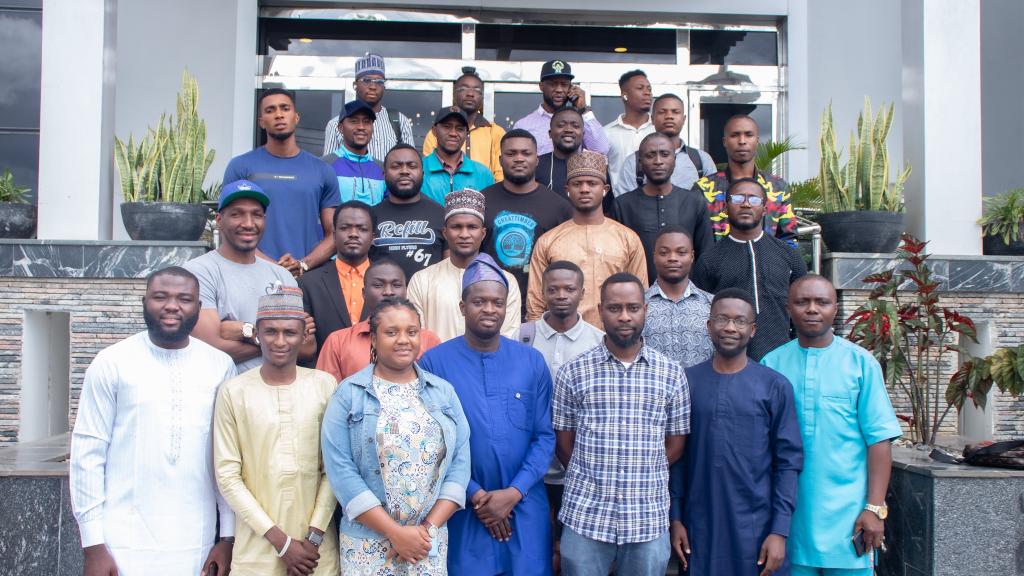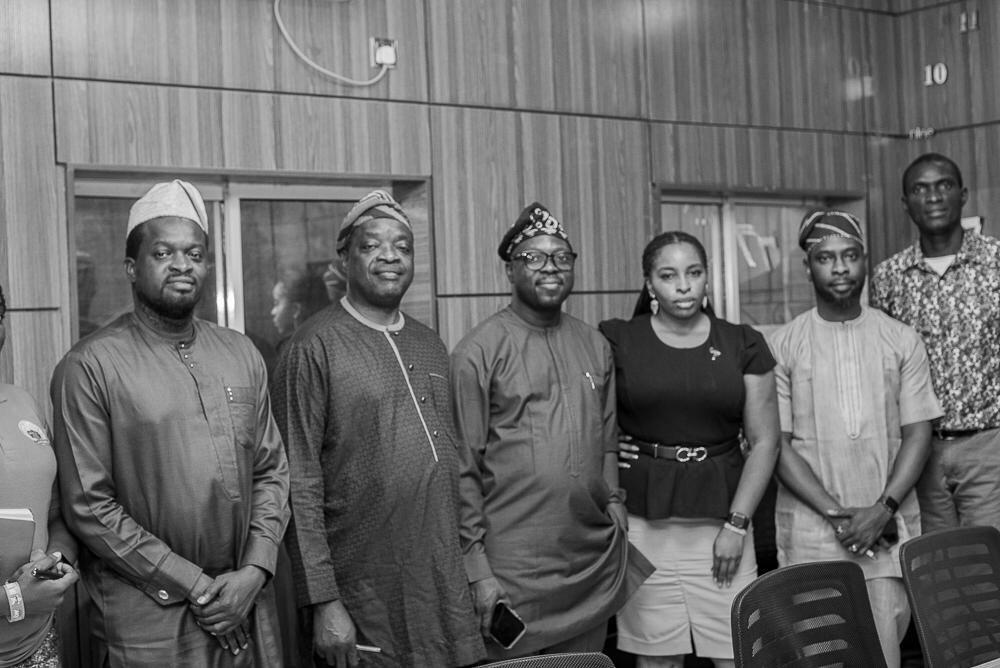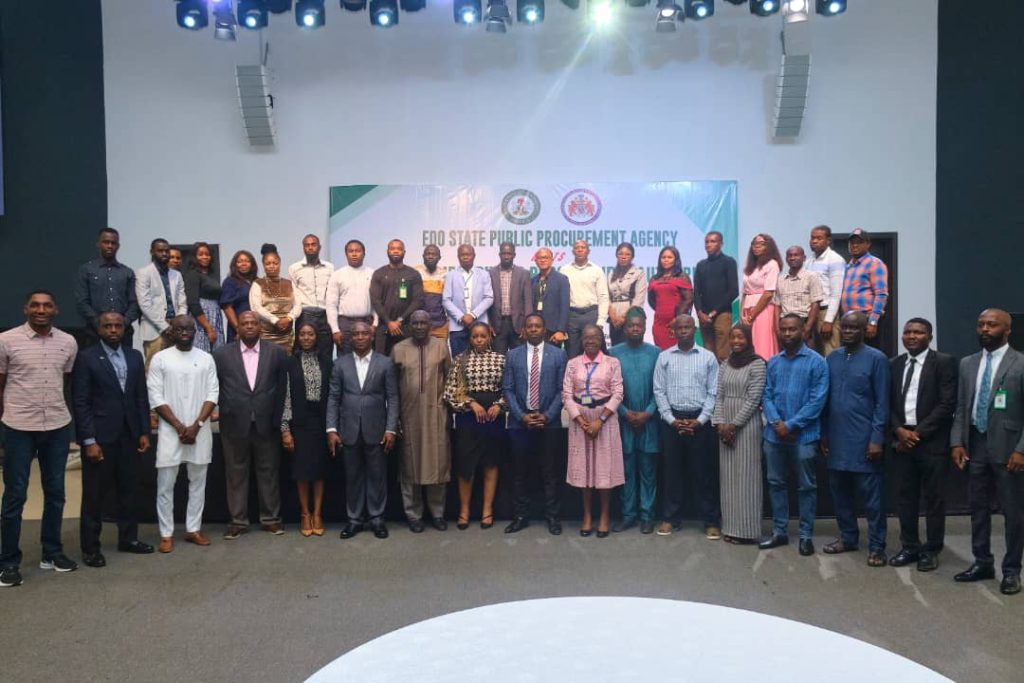This investigation by PATRICK EGWU is one of a three-part year-long investigative series on climate change disinformation and corruption produced as part of the Bertha Challenge Fellowship. It looks into corruption, lack of transparency and accountability in the management of ecological funds by the Ecological Project Office.
The Ecological Project Office is a cesspit of corruption. It ranks as one of Nigeria’s most corrupt government offices with lack of transparency or accountability.
The office was established in 1981 with specific mandates of responding to ecological disasters across Nigeria such as flooding, erosion, oil spills, drought and desertification, affecting different parts of the country, and to provide remediation work in affected regions. The office has been a subject of intense scrutiny from anti-corruption campaigners and civil society groups.
Funds allocated to the office have come from one single source – the Federal Account Allocation Committee (FAAC), the nation’s central purse. The FAAC was created with the aim of disbursing revenues generated by the federal government to sub-national levels – states and local governments. The ecological fund is 3 percent of the federal account which is received each month.
In the last decade alone, more than $700 million was received by the ecological office in monthly disbursements, according to data obtained from the National Bureau of Statistics (NBS) ecological database. For instance, between June to Dec. 2023 and Jan to May 2024, more than N40 billion ($24 million) was allocated to the 36 states of the country to respond to ecological challenges in their regions, per the NBS data. The NBS data also showed that 36 states received N64.417 billion ($38 million) as ecological funds between 2021 and 2022.
Infographics showing fund disbursed for ecological responses in the last 10 years.
Per Ripples Nigeria analysis and taking rising inflation into consideration, the funds received by the ecological office during this period if put to proper use, can build five bridges, five drainage control systems, four kilometers road network, improved early warning systems and more than one million trees planted for 10 flood and erosion affected communities in each of the 36 states. An estimated, 10 million people could be direct and indirect beneficiaries.
Infographics showing flood and erosion control projects that can be executed in affected communities with ecological funds during a 10-year period.
In September, the federal government approved a separate funding of N3 billion ($1.7 million) outside of the FAAC allocations to each of the 36 states to respond to natural disasters such as flooding. But there are no monitoring mechanisms to ensure transparency in the use of the funds.
This is not unusual. Funds allocated to the ecological office through the federal accounts have not been meaningfully utilized or properly accounted for, said Joshua Olufemi, founder of Datapyte, a media research and data analytics organisation. Dataphyte has previously investigated corruption in the ecological fund and how local communities across the country are impacted.
Olufemi said while the ecological office has initiated and executed some projects in some rural communities and urban settlements across the country, there are still cases of lack of project execution.
“Most of the projects are either unfinished or the funds are misappropriated before or during the period of project implementation,” he said.
Lack of accountability has exacerbated ecological issues across the country. Communities have been displaced and livelihoods affected. In 2022, Nigeria witnessed one of the worst climate disasters in over a decade. More than 600 people died following days of flooding across the country. More than 1.5 million people were displaced and nearly 700,000 hectares of farm lands destroyed.
Since April this year, flood disasters have affected 29 of Nigeria’s 36 states, with more than 300 deaths and nearly one million people displaced, according to the National Emergency Management Agency (NEMA), the national body which responds to emergencies.
Victoria Agada, a mother of four boys, was one of such victims. She was washed away by flooding in Mararaba, a suburban part of Abuja, Nigeria’s capital city, while on her way to the local market. The next day, her mangled body was found by rescuers.
“It’s a common problem in that area,” said Ocheme Ene, Agada’s cousin. “The bridge which connects to the market has been bad for a long time and has not been fixed.”
Conviction and failed probes
Joshua Dariye, a former state governor of Plateau state in the north-central region was the first high-ranking public official to be convicted of misappropriating the ecological funds.
Dariye was jailed in 2018 for 14 years for embezzling N1.16 billion ($685,000) of the ecological funds allocated to his state for his own personal use. He was granted state pardon in 2022 by the government amid public outcry.
Former governor Joshua Dariye was the first high ranking public official to be jailed for misappropriating the ecological fund for his own personal use.
After the trial of Dariye, no other public official linked to ecological fund corruption has been prosecuted or held to account.
Ripples Nigeria investigation shows that over the last decade, about ten panels of inquiries have been set up by the government to investigate the operations of the ecological fund office. The main focus of these panels have been on contracts, procurements, bidding processes, execution or non-execution of projects and misappropriation of funds for awarded contracts.
The Nigerian House of Representatives has a committee on ecology. The committee was set up to perform oversight functions of investigating the activities of the office.
Two federal lawmakers – Aminu Sani Jaji and Oyedeji Oyeshina, currently lead the committee. Jaji didn’t respond to interview requests when Ripples Nigeria tried to make contacts with him through phone calls and text messages, while Onyeshina agreed to speak on the work of the committee. An interview date and time was agreed between Ripples Nigeria reporter and Oyeshina in August. The reporter called on the set time but the lawmaker did not respond to calls. There has been no feedback to text messages and subsequent follow-up calls as at the time of publishing this report.
Previous committees like the one led by Jaji and Onyeshina have promised to make the ecological office account for allocated funds received from the federal accounts. But despite resources and financial commitments, the committees have never released a comprehensive report or audit indicting any corrupt officials for misappropriation of funds.
READ ALSO: Nigerian govt defends borrowing, says loans based on legislative approvals
Last year, the Public Complaints Commission set up an investigative panel to look into the ecological office at the state levels and the N177.8 billion ($105 million) that was shared to the 36 states. Twenty-seven states were invited to account for their use of the funds but none showed up. There was no outcome from the panel.
Ecological fund allocation to 36 states. Source – Daily Trust
Inconclusive outcomes from the probe panels and committees on the ecological office such as the one currently led by Jaji and Oyeshina, have emboldened corrupt officials. Former officials at the ecological office such as Habiba Lawal, the former permanent secretary of the Ecological Project Office who has been linked to contract diversion and interference is yet to be prosecuted.
The Socio-Economic Rights and Accountability Project (SERAP), a legal advocacy nonprofit promoting transparency and accountability in governance, has been leading the calls for extensive probes and audits of the ecological fund.
In September, a collapsed dam and rainfall triggered flooding in Borno State, north-east Nigeria. More than 40 people were killed and nearly 500,000 displaced. Before the floods, Borno received N816 million ($482,000) between Jan. and June 2024 for ecological responses.
SERAP and other civil society groups have accused the state government of mismanaging the ecological funds it received from the federal government and called for a probe.
A letter by Kolawole Oluwadare, deputy director of SERAP said it is concerned that the ecological funds received by authorities in Borno over the years have been “diverted, mismanaged or unaccounted” for.
“The failure of successive governments and high-ranking government officials to prevent corruption in the spending of the Ecological Fund has hugely contributed to the inability of authorities at all levels to address ecological challenges, and the impact of flooding across the country,” SERAP said.
Ecological Project Office stays silent
The Ecological Project Office did not agree to interview requests by Ripples Nigeria. Public-serving government agencies, ministries and offices are notorious for evading interview requests from journalists.
Ripples Nigeria made unsuccessful attempts to speak with officials of the ecological office. Three separate visits were made from Lagos to Abuja, Nigeria’s capital city where its headquarters is located between August and September.
During the first visit in mid-August, the ecological office communications department said they were expecting a new permanent secretary who had just been appointed but was yet to resume office. Checks by Ripples Nigeria showed the new permanent secretary Aishetu Gogo Ndayako resumed office on Aug. 6. During the second visit in September, the communications office said Ndayako had just resumed office and was still settling down and was not yet ready to grant interviews.
Aishetu Gogo Ndayako is the new Permanent Secretary of the Ecological Project Office. Photo by Ecological Fund Office.
When it became apparent that an interview wouldn’t be possible, Ripples Nigeria decided to explore the last resort — a Freedom of Information (FOI) request. The FOI Act provides the right to request and access public interest information and records from government agencies, including the ecological office. The information must be provided within seven days from when the request was made.
The ecological office acknowledged receipt of the FOI request on Nov. 18. But the full details of the requests were not received at the time of publishing this story.FOI request
Non-compliance to FOI requests is common among government agencies and offices in Nigeria. A 2023 report showed that no fewer than 175 government agencies and ministries across the country failed to respond to requests made through the FOI Act.
“More than 80 percent of government agencies and ministries do not respond to these requests,” said Lucy Abagi, the chief executive of the Public and Private Development Centre, a nonprofit promoting transparency and accountability. Abagi and her team conduct an annual ranking survey to assess the compliance rate of government agencies to FOI requests.
“The request is simple: make information available or publish the same on your website for easy access,” she said. “The essence is for inclusion and to ensure that citizens are carried along and involved in procurement and all decision making of the government.”
The post INVESTIGATION: Nigeria’s Ecological Funds: Corruption, misappropriation runs deep appeared first on Latest Nigeria News | Top Stories from Ripples Nigeria.
Last modified: November 26, 2024









